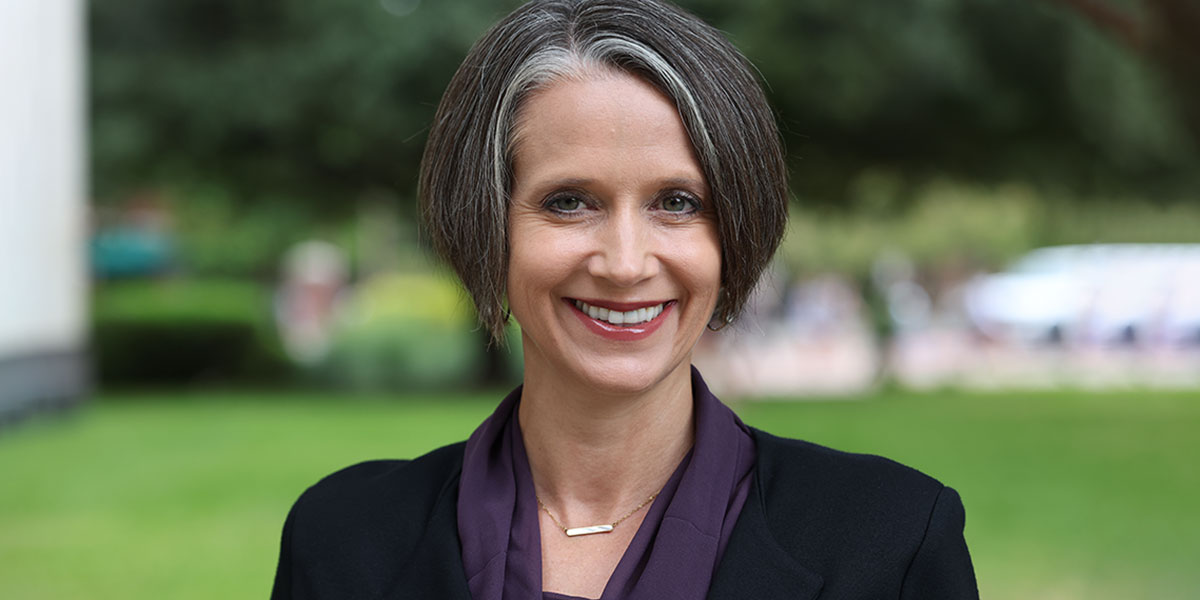Meet Baylor’s nationally recognized expert on promoting active living in communities

Think about the community you call home. Does its setup encourage you (and those around you) to be active? Is there a track or walking path for adults, or a playscape for kids? Can you ride your bike to work or the store? Is the area walkable?
Dr. Renée Umstattd Meyer (BSED ’00) has built a nationally recognized research career thinking about questions like these, and has put that research to work helping communities across the country better support the health of their residents.
Umstattd Meyer serves as professor of public health and associate dean for research in Baylor’s Robbins College of Health and Human Sciences, with a focus on communities and the ways they can emphasize health equity through active living. Her work has been supported by leading organizations such as the U.S. Department of Agriculture, the American Heart Association, the Centers for Disease Control and Prevention, and the Robert Wood Johnson Foundation. She has also collaborated with communities in Texas and across the nation to promote active living for their residents.
One recent example focuses on “Play Streets” — temporary closures of streets to create safe and accessible places for children to play and be active. Play Streets can be uniquely designed to meet a community’s needs and personality — an approach that dovetails with Umstattd Meyer’s community-centric approach to research. [Hear her explain it in this video.]
Given the success of Play Streets in urban areas, Umstattd Meyer has advanced research on the ways these opportunities could also benefit smaller and rural communities, especially underserved communities which often lack resources to promote physical health and activity. Her work has benefitted local communities while advancing her research to help others. Umstattd Meyer also works to create tools that support communities in supporting their residents, long after the research is complete. To that end, she and collaborators have published a research-backed guide to implement Play Streets in rural communities.
“I can tell a story with data, but I can also help educate and bring that alongside with a community where they can run with it themselves,” says Umstattd Meyer. “Then they have that data to understand what their strengths are and recognize ways they make a difference for the people living in their communities.”
Sic ’em, Renée Umstattd Meyer!

